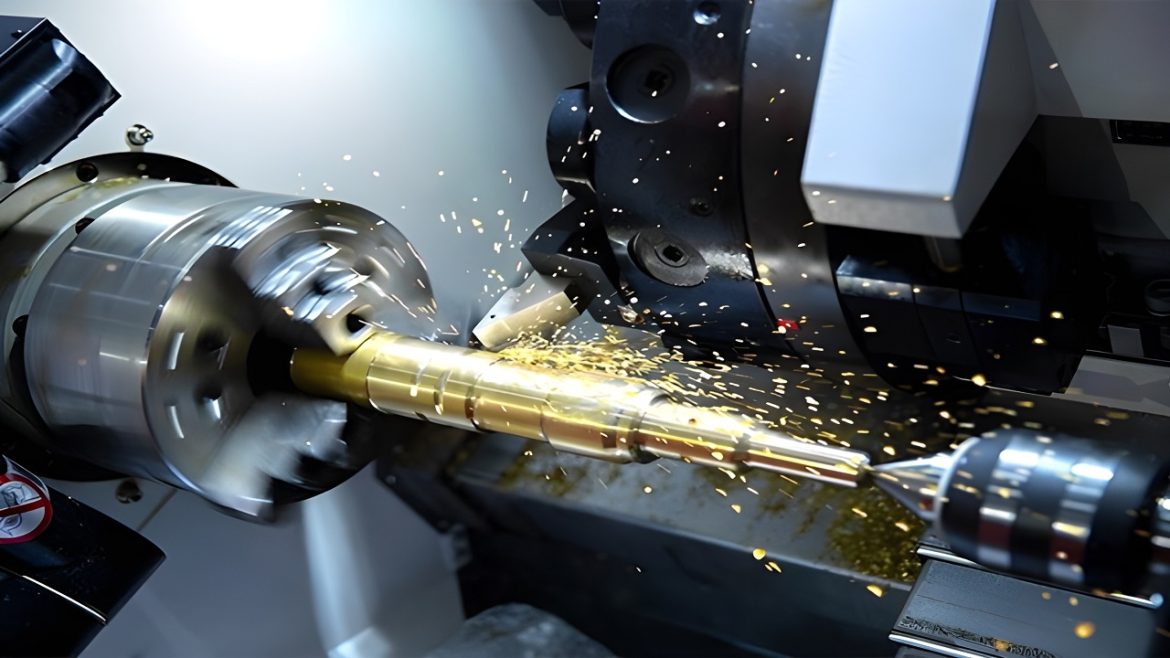In the realm of modern manufacturing, precision is paramount. Industries spanning aerospace, automotive, medical, and beyond require intricate components that meet exacting standards. This is where CNC (Computer Numerical Control) turning services come into play, offering a versatile solution to these demanding requirements. In this article, we will explore the world of CNC turning services, emphasizing their versatility and diverse applications. For a deeper dive into the world of CNC turning services and how they can transform your projects, keep reading more.
Understanding CNC Turning
Before we dive into the versatility of CNC turning, let’s grasp the basics of the process. CNC turning involves material removal from a rotating workpiece along a linear path using tools on a CNC lathe. Unlike CNC milling, where the cutting tool rotates, CNC turning relies on the workpiece’s rotation and a stationary cutting tool. This method delivers remarkable precision and surface finish, making it suitable for various applications.
Parts With Rounded Surfaces
One of the primary strengths of CNC turning is its ability to manufacture parts with rounded surfaces. CNC lathes excel at creating circular or cylindrical components swiftly and accurately. Whether it’s intricate gears or perfectly round shafts, CNC turning delivers excellent repeatability.
Automated and Cost-Effective
CNC turning is synonymous with automation and scalability. These machines are highly automated, enabling them to adapt to both low-volume and high-volume production runs without incurring excessive costs. This cost-effectiveness is a boon to industries seeking efficient manufacturing solutions.
Multitasking Capabilities
Modern CNC turning centers and mill-turn lathes take versatility to the next level. They allow for multiple operations and multi-step machining processes to be performed on a single machine. This means that complex geometries, which would traditionally require multiple setups, can now be achieved efficiently and cost-effectively.
Available Operations of CNC Turning Services
The range of operations that can be performed using CNC turning is truly impressive. Aside from the core turning process, CNC lathes can handle tasks like OD and ID turning, parting off and grooving, facing, boring and reaming, drilling, threading, and more. Each operation contributes to the versatility of CNC turning, making it a go-to choice for intricate parts.
CNC Lathe Capabilities
AN-Prototype’s CNC lathe capabilities are a testament to their commitment to precision. With a fleet of CNC lathes, including engine lathes, turret lathes, and CNC mill lathes, they can accommodate a wide range of part sizes and complexities. Their tightest tolerances ensure that each component meets the exact specifications, with straightness, concentricity, and diameter control within microns.
CNC Turning Materials
The versatility of CNC turning extends to the materials it can handle. CNC-turned parts can be crafted from various metals and plastics, including aluminum, steel, stainless steel, brass, copper, magnesium alloys, titanium alloys, ABS, POM, PEEK, acrylic, nylon, and more. This flexibility allows manufacturers to select the ideal material for their specific application.
Conclusion
CNC turning services are essential in modern manufacturing, offering unmatched precision and versatility. AN-Prototype’s commitment to excellence and its comprehensive suite of services further exemplify the potential of CNC turning. As industries continue to demand ever more intricate and precise components, CNC turning will undoubtedly remain at the forefront of manufacturing innovation.
